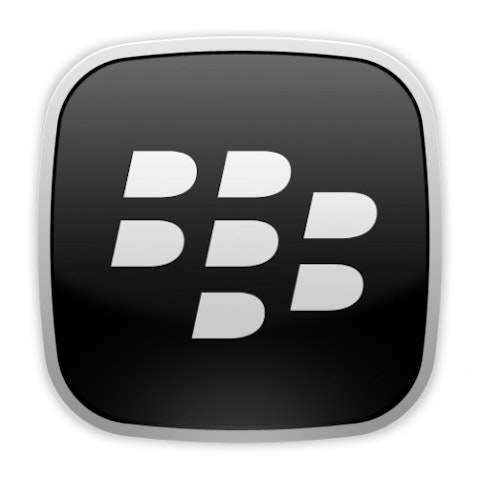The mobile computing business has changed virtually everything we used to take for granted in the old computer business. When the PC market was first established, a network effect created two major players, Microsoft Corporation (NASDAQ:MSFT) and Apple Inc. (NASDAQ:AAPL). A network effect is when the number of users on a certain platform draws more users to the platform, creating a reinforcing loop for the company creating the network effect.

But the mobile business has turned that model on its head. Instead of being difficult to change between operating systems, it’s very easy. We’ve gone from Motorola being a dominant player to a desperate sale to Google Inc (NASDAQ:GOOG). Nokia Corporation (ADR) (NYSE:NOK) used to kill in mobile share, including smartphones, but now it’s desperate to become relevant again. Research In Motion Ltd (NASDAQ:BBRY) BlackBerry used to own the business market and now it’s a has-been searching for a way back to relevance.
The point is, mobile changes quickly and investors need to be on the lookout for what’s next, not what’s been popular in the past.
The next big thing
We all know that Apple and Google currently dominate mobile. But we’ve seen in the past that leads in mobile are fleeting and an interesting battle is emerging for third place between BlackBerry and Microsoft Corporation (NASDAQ:MSFT), a battle that will likely define the stock trajectory of both companies going forward. Microsoft Corporation (NASDAQ:MSFT) recently launched Windows 8 along with mobile versions of the software and BlackBerry has now introduced BlackBerry 10.
Both companies have struggled in mobile, to say the least, and both are trying to put their best foot forward to attract customers. BlackBerry is trying to attract customers by essentially making Android apps available for BlackBerry 10. The new operating system has an Android Player that makes it easy for developers to add Android apps to the BlackBerry platform. This gives BlackBerry a large ecosystem of apps to attract customers.
Microsoft Corporation (NASDAQ:MSFT), on the other hand, is counting on Windows 8 to draw consumers to its devices. When you dominate the PC landscape, you have the advantage of making people comfortable with your interface while also drawing developers and businesses to your operating system. The challenge for Microsoft is that it doesn’t have a large developer network for mobile yet. Its operating system is getting a lot of (surprisingly) strong reviews online, but unless 2013 is filled with developers building apps for Windows Phone 8, the OS won’t be a success.
Who wins third place?
Both BlackBerry and Microsoft have their advantages in the battle for third place in mobile. Leveraging the Android app system is a huge bonus for BlackBerry, although I’m sure it would rather have developers build native apps using BlackBerry’s unique features. Microsoft has a big advantage by dominating the PC operating system and a much larger balance sheet, meaning it can essentially bribe its way to decent market share if it needs to (see Microsoft’s deal with Nokia).
But I think the winner will come down to something far simpler — brand.
The market share leader is rarely the most-loved device, something Apple enjoyed for a surprisingly long time. With iOS aging and other emerging operating systems superior in many ways, we could see the underdog become the hot item. At this point in its history, Apple doesn’t play the underdog role. This leaves an opening for BlackBerry or Microsoft.
BlackBerry’s problem playing the underdog is that it wasn’t long ago it was top dog. BlackBerry isn’t a cool name among the kids these days. It’s not even a cool name among the business community. Business heard the cries of employees and opened up email and other systems to iOS and Android so people could get away from the clickity-clack of BlackBerry phones. Going back now would be so… uncool.
Somehow, Microsoft gets to play the underdog role here. I even find myself rooting for Windows 8 to succeed in mobile, despite the fact that I’m tied to all things Apple.
I don’t know if Microsoft will take a reasonable amount of share from Apple and Google in 2013, but I give it a better shot than BlackBerry. We’ve beaten up on Microsoft for more than a decade so maybe now is the time for something of a comeback story.
The article Microsoft and BlackBerry Fighting for 3rd Place in Mobile originally appeared on Fool.com and is written by Travis Hoium.
Fool contributor Travis Hoium manages an account that owns shares of Apple and Microsoft. You can follow Travis on Twitter at @FlushDrawFool, check out his personal stock holdings or follow his CAPS picks at TMFFlushDraw. The Motley Fool recommends Apple and Google. The Motley Fool owns shares of Apple, Google, and Microsoft.
Copyright © 1995 – 2013 The Motley Fool, LLC. All rights reserved. The Motley Fool has a disclosure policy.





